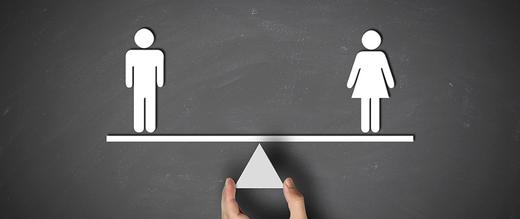The views expressed in our content reflect individual perspectives and do not represent the authoritative views of the Baha'i Faith.
No Baha’i husband should ever beat his wife, or subject her to any form of cruel treatment; to do so would be an unacceptable abuse of the marriage relationship and contrary to the Teachings of Baha’u’llah. – Statement on Violence against Women and Sexual Abuse, the Universal House of Justice, January 24, 1993.
While working in another country, our daughter repeatedly noticed a family on her way home from work each evening. She saw them just about every day, and realized, after smiling, saying hello and briefly socializing with them several times, that the family’s two children were exceptionally polite and well-behaved. One day she complimented the family on the children’s good behavior.
“Your children are so good,” she told the parents.
“Thank you,” the father beamed with delight at the compliment. “I beat them every night. My wife, too.”
That old attitude, believe it or not, was once prevalent all over the world. You’ve heard the saying “Spare the rod and spoil the child,” but did you ever hear the phrase “the rule of thumb?” It comes, reportedly, from an ancient doctrine of English common law before 1500, when husbands could legally beat their wives with sticks no bigger than the width of the man’s thumb. That kind of legally and culturally acceptable wife-beating has existed for thousands of years. It wasn’t until 1982 that the U.S. Commission on Civil Rights issued a pioneering report on wife abuse, titled “Under the Rule of Thumb”.
The Commission’s report found that spousal abuse, whether physical or psychological, is frighteningly common. The United Nations Population Fund says one in three women will experience physical or sexual assault during their lifetimes—and most of that takes place, not from strangers, but within their relationships.
Despite all that, courts, governments and the police have not regarded spousal abuse and domestic violence as criminal acts until fairly recently. In fact, many countries still treat spousal abuse, honor killings, forced child marriage, dowry killings and femicide as domestic matters rather than human rights violations and criminal offenses. If the husband “owns” the wife as property, just as many legal codes still state, then domestic slavery usually permits and condones domestic violence.
In response to that widespread fact, the United Nations published Strategies for Confronting Domestic Violence: A Resource Manual in 1993. It reported that:
…a large number of countries allow moderate physical chastisement of a wife or, if they do not do so now, have done so within the last 100 years. Again, most legal systems fail to criminalize circumstances where a wife is forced to have sexual relations with her husband against her will… Indeed, in the case of violence against wives, there is a widespread belief that women provoke, can tolerate or even enjoy a certain level of violence from their spouses.
To counter these prevailing attitudes in so many places, the 1980s and the early 1990s witnessed a large worldwide movement to stem the tide of domestic violence against women, and an international resolution resulted: the United Nations Declaration on the Elimination of Violence against Women. It says:
…violence against women is a manifestation of historically unequal power relations between men and women, which has led to domination over and discrimination against women by men and to the prevention of the full advancement of women, and that violence against women is one of the crucial social mechanisms by which women are forced into a subordinate position compared with men.
The global Baha’i community actively campaigned for and supported that U.N. Resolution, and continues to advocate for equal power relations between women and men:
…let it be known once more that until woman and man recognize and realize equality, social and political progress here or anywhere will not be possible. For the world of humanity consists of two parts or members: one is woman; the other is man.Until these two members are equal in strength, the oneness of humanity cannot be established, and the happiness and felicity of mankind will not be a reality. – Abdu’l-Baha, The Promulgation of Universal Peace, p. 76.
“Until these two …are equal in strength,” Abdu’l-Baha said, “the happiness and felicity of mankind will not be a reality.” The Baha’i teachings have advocated those equal power relations the United Nations cites for almost two centuries now.
Multiple scientific studies have proven that sexual abuse, sexual assault and rape are typically committed by men taking out their anger at women, motivated by a desire to dominate and control just as much as by a desire for sexual gratification. Those mixed motives reveal something fundamentally unequal in the authority and dominion-based relationship between women and men in many societies. When men have more power—not just physical strength but political and social power—that power is often used against women to “keep them in their place.”
Because we’ve moved past the era in human history when physical strength ruled; and begun moving into a new era when intellectual, moral and spiritual strength will prevail, we now have the ability to treat both genders equally—and to stop sexual assault.
What can we do to best prevent sexual assault and violence against women? We can change the underlying power equation, and in that process do everything we possibly can to make sure men and women are, as the Baha’i teachings put it, “equal in strength.”

















Comments
Sign in or create an account
Continue with Facebookor